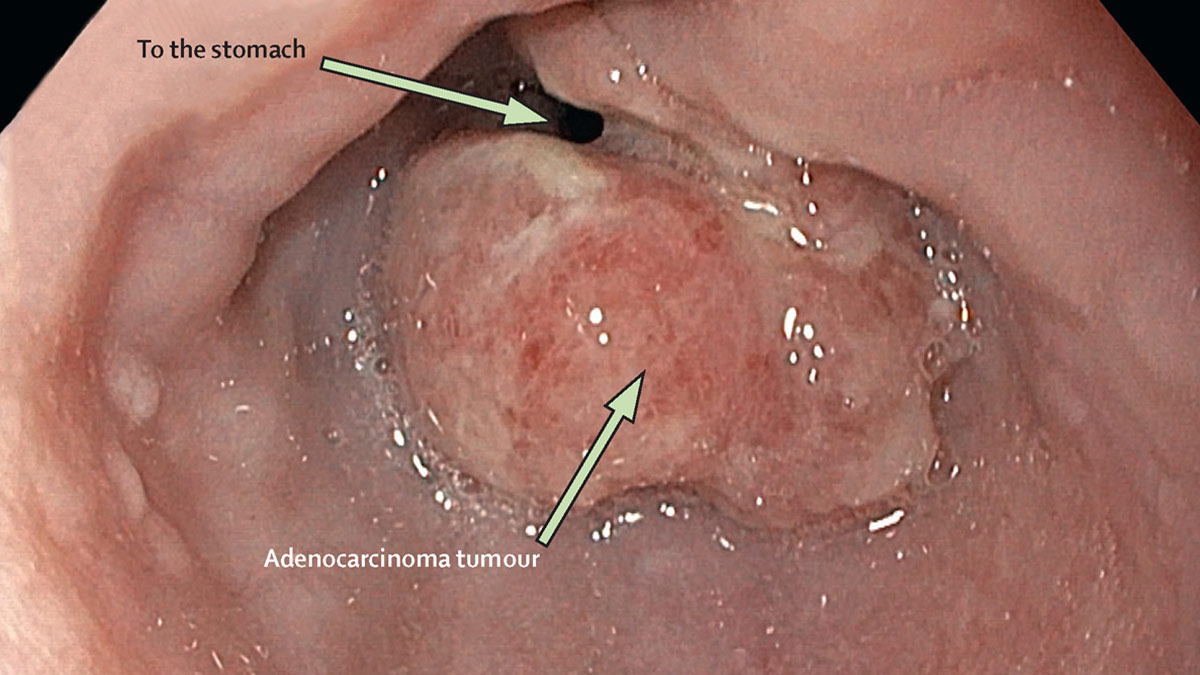
Oesophageal cancer has become a growing concern in the UK, with experts pointing out that the country has the highest rates of this cancer in Europe. Recent statistics reveal that over 10,000 Britons are diagnosed with the disease annually, and tragically, eight out of ten do not survive beyond five years due to late-stage detection. This alarming trend has raised questions about why the UK sees more cases compared to other European countries such as Italy, Spain, France, and Germany, where the incidence rate is significantly lower.
Table of Content:-
Why Are Oesophageal Cancer Cases Higher in the UK?
One of the major reasons oesophageal cancer is more prevalent in the UK is the high incidence of acid reflux, also known as gastroesophageal reflux disease (GERD). Medical professionals estimate that one in four Britons—over 10 million people—suffer from acid reflux, making it a leading risk factor for this type of cancer.

Apart from acid reflux, other lifestyle and environmental factors contribute to the UK’s high rate of oesophageal cancer, including:
- Obesity: The UK has one of the highest obesity rates in Europe, and excess body weight increases pressure on the stomach, causing acid reflux and, in turn, increasing the risk of oesophageal cancer.
- Smoking: Tobacco use has been directly linked to the development of oesophageal cancer, and despite declining smoking rates, past smoking habits continue to influence cancer statistics.
- Alcohol Consumption: The UK has a high prevalence of alcohol consumption, which can irritate and damage the oesophageal lining over time, leading to cancer.
- Dietary Habits: The British diet, often rich in processed and high-fat foods, has been linked to an increased risk of oesophageal cancer compared to the Mediterranean diets of Italy and Spain, which are rich in fresh fruits, vegetables, and healthy fats.
- Consumption of Hot Beverages: Some studies suggest that frequently consuming extremely hot drinks may contribute to oesophageal damage, potentially leading to cancer.

Younger Adults Are at Risk Too
Traditionally, oesophageal cancer was more common in older adults, but doctors are now seeing a rising number of cases in people under 40 years of age. Experts are still investigating why younger adults are being affected at an increasing rate, but potential explanations include:
- Increased Sedentary Lifestyles: More people are leading inactive lifestyles, leading to weight gain and higher cases of acid reflux.
- Unhealthy Diets: The growing consumption of processed foods and sugary drinks may play a role in increasing cases among younger populations.
- Rising Stress and Anxiety Levels: Stress can contribute to acid reflux and poor digestive health, which, over time, may increase the risk of oesophageal cancer.
Also Read: World Cancer Day 2025: Bollywood Celebrities Who Successfully Fought The Deadly Cancers
What Is Oesophageal Cancer?
Oesophageal cancer occurs in the long, muscular tube that connects the throat to the stomach, making it difficult for patients to swallow and digest food. The two most common types of this cancer are:
- Adenocarcinoma: More common in Western countries, often linked to acid reflux and obesity.
- Squamous Cell Carcinoma: More commonly linked to smoking and alcohol consumption.

Symptoms of Oesophageal Cancer
Since the oesophagus can expand around a growing tumour, early symptoms may not always be noticeable. However, some warning signs include:
- Persistent heartburn or acid reflux
- Difficulty swallowing (dysphagia)
- Pain or discomfort behind the breastbone or between the shoulder blades
- Vomiting or coughing up blood
- Unexplained weight loss
- Chronic cough or hoarseness
How to Reduce Your Risk of Oesophageal Cancer
Although there is no guaranteed way to prevent oesophageal cancer, there are several measures that can significantly reduce your risk:
Maintain a Healthy Weight
Obesity is a major risk factor for oesophageal cancer, so maintaining a balanced diet and engaging in regular physical activity can help prevent excess weight gain and reduce the risk of acid reflux.
Eat a Nutrient-Rich Diet
Incorporate a diet rich in fruits, vegetables, and whole grains while avoiding processed and fried foods. The Mediterranean diet, which is common in countries with lower oesophageal cancer rates, includes olive oil, nuts, fish, and fresh produce, all of which promote good digestive health.
Also Read: Ebola Outbreak In Uganda: Health Officials Set To Launch Urgent Vaccine Trial
Avoid Smoking and Excess Alcohol Consumption
Quitting smoking and reducing alcohol intake can significantly lower the risk of oesophageal cancer and improve overall health.
Manage Acid Reflux Properly
If you frequently experience heartburn or acid reflux, consult a doctor for treatment options. Medications like proton pump inhibitors (PPIs) and lifestyle modifications can help prevent long-term damage to the oesophagus.
Be Mindful of Hot Beverages
Studies suggest that drinking excessively hot beverages may damage the oesophageal lining. Let your drinks cool down before consuming them.
Consider HPV Vaccination
The human papillomavirus (HPV) has been linked to certain types of oesophageal cancer. Getting vaccinated may offer some level of protection.
Bottomline
The UK’s high prevalence of oesophageal cancer compared to other European nations is a concerning issue that requires urgent attention. While factors such as acid reflux, obesity, smoking, alcohol consumption, and dietary habits play a role in this alarming trend, the rising cases in younger adults add another layer of concern. By adopting a healthier lifestyle, managing acid reflux, and avoiding known risk factors, individuals can take proactive steps to reduce their chances of developing this deadly disease.
Also watch this video
How we keep this article up to date:
We work with experts and keep a close eye on the latest in health and wellness. Whenever there is a new research or helpful information, we update our articles with accurate and useful advice.
Current Version